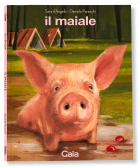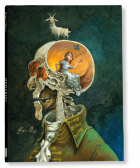MARLOWE CHRISTOPHER
 Christopher Marlowe (1564-1593)
Christopher Marlowe (1564-1593)
Dramatist, son of a shoemaker, he was born in Canterbury and educated at the King’s School; in 1581 he went to Benet’s (now Corpus Christi) College, Cambridge, where he graduated B.A. 1583, and M.A. in 1587. Very little is known about his life after graduation. It has, however, been conjectured, partly on account of his familiarity with military matters, that he took service, probably in the Low Countries.
His first play, Tamburlaine, was acted in 1587 or 1588. The story is drawn from the Spanish Life of Timur by Pedro Mexia. Its resounding splendour, not seldom passing into bombast, won an immediate popularity, and it long held the stage. In 1604 it was followed by Faustus, a great advance upon Tamburlaine in a dramatic sense. The absence of “material horror” in the treatment, so different in this respect from the original legend, has often been remarked upon. Marlowe’s handling of the subject was greatly admired by Goethe, who, however, in his own version, makes the motive knowledge, while Marlowe has power, and the mediæval legend pleasure. In his next play, The Jew of Malta, Marlowe exhibits an increasing technical skillfulness, but the work is unequal, and the Jew Barabas is to Shylock as a monster to a man. In Edward II, Marlowe rises to his highest display of power. The rhodomontade of Tamburlaine and the piled-up horror of The Jew are replaced by a mature self-restraint, and in the whole workmanship he approaches more nearly to Shakespeare than any one else has ever done. As Lamb says, “The death scene of Marlowe’s King moves pity and terror beyond any scene, ancient or modern, with which I am acquainted.” Marlowe is now almost certainly believed to have had a large share in the three parts of Henry VI, and he may have also collaborated in Titus Andronicus. His next plays, The Massacre of Paris and The Tragedy of Dido (written with Nash), both show a marked falling off; and it seems likely that in his last years, breaking down under the effects of a wild life, he became careless of fame as of all else. Greene, in his Groat’s Worth of Wit, written on his deathbed, reproaches him with his evil life and atheistic opinions, and a few days before his hapless death an information was laid against him for blasphemy. Yet leaving all this facts aside, Marlowe’s life and opinions were widespread known. On the other hand, his friends, like Shakespeare, Nash, Drayton, and Chapman, were altogether very proud of him.
Marlowe is the father of the modern English drama, as well as the precursor of the modern form of blank verse; while in imagination, originality, and dramatic force he is less powerful than Shakespeare, the greatest poet among the Elizabethans. Apart from his plays, he wrote some short poems (the best known is Come live with me and be my love), translations from Ovid’s Amores and Lucan’s Pharsalia, and a glowing paraphrase of Musaeus’ Hero and Leander, a poem completed by Chapman.
From Biographical Dictionary of English Literature - the Everyman Edition of 1910
links: - The Marlowe Society |






